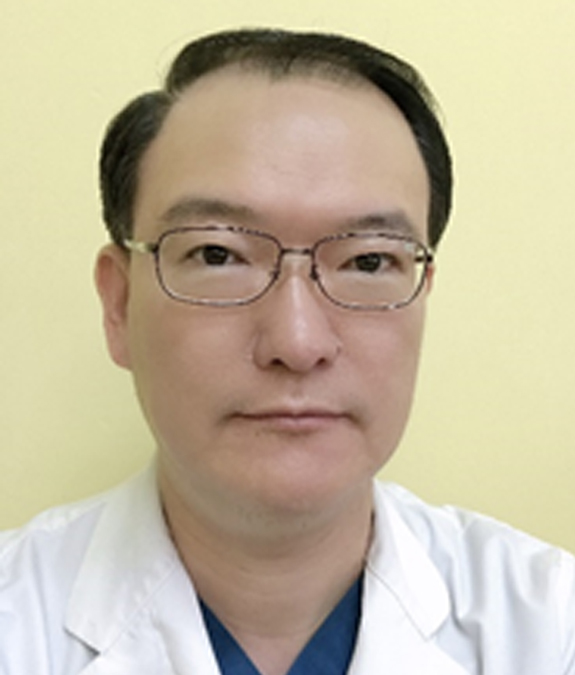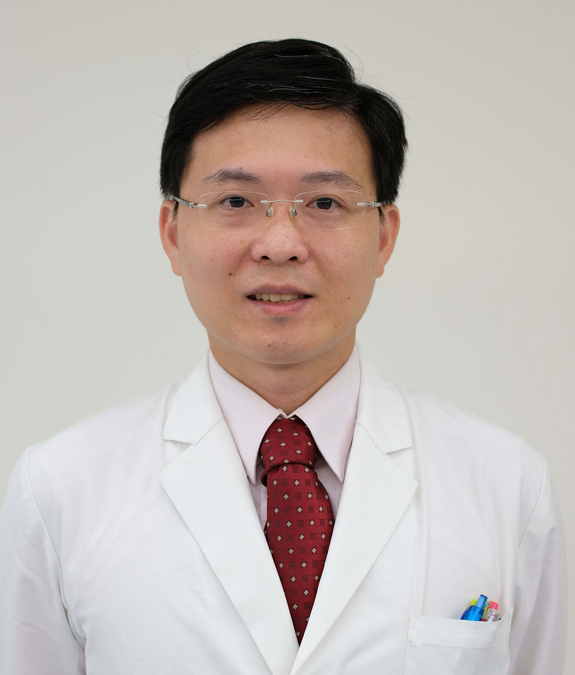
Specialty: Movement disorders and Parkinson's disease, neuromuscular disease research and neurological assessment
Tel:04-23592525#3022
E-mail:cmh500809@gmail.com
Brain and neuroscience is an important and popular research field in the contemporary era. In order to explore and study brain function and neuroscience, our college has established an interdisciplinary "Brain and Neuroscience Research Center". The purpose of the center is to explore the regulation mechanism of central and peripheral neurons functions, develop translational medicine to understand the pathophysiological mechanism of brain and peripheral nerve diseases and develop possible treatment directions, and cultivate first-class talents in brain and neuroscience research. The research direction of the center focuses on neurodegenerative diseases and cognitive function, neural regeneration and repair, language function and brain decision-making network, from clinical assessment, genes, biomarkers, molecules to neuroimaging, aiming at pathophysiological mechanisms, disease diagnosis, risk prognosis and treatment for a comprehensive discussion.
In the initial stage, the existing staff of the neurology, the department of post-baccalaureate medicine will focus on the existing research themes and equipment, gradually expand the field and themes of research, and initially focus on degenerative diseases and neuropathy and repair. The brief grouping is as follows:
(a) Neurodegeneration Group: Blood biomarkers are used to predict disease progression and prognosis, and image and signal analysis will be added in the future.
(b) Neurodegeneration and Repair Group: To explore the clinical and basic mechanism of neuropathy, and at the same time apply the treatment of cells and organelles, establish animal models, and develop clinical human applications.
In the mid-term, with the goal of establishing a neuroimaging and signal analysis laboratory, experts in biomedicine, language, business decision-making, and mental science from the school will be recruited to join the center to create a mental decision-making group. The brain wave instrument of the department of neurology, the near-infrared optical brain spectrometer of the department of psychiatry, and the core laboratories of related research units in the school are expected to effectively promote related research.

Specialty: Geriatric Medicine, Pain Therapy, Rehabilitation for the Elderly
Tel:04-23592525#3500
E-mail:rifampin@nchu.edu.tw
The goal of the establishment of Intelligent Long Term Medical Care Research Center is to promote the application of intelligent medicine in the field of long-term care, as well as to facilitate research on them. It was established based on the needs of cultivating talents and technological development. The field of research includes: development of long-term intelligent rehabilitation facilities and equipment at home, exercise course design for virtual reality devices, development of wearable devices combined with inertial measurement unit gyroscopes, development of gait analysis and correction device based on live-stream video and inertial measurement unit, design of nursing and chat robots, development and application of long-term intelligent orthosis, plantar pressure detection and development of smart insoles, design of soft orthosis and night orthosis using 3D photography, development of upper limb functional orthosis and lower limb orthosis for walking using 3D printing technology, development of smart communication equipment in the field of long-term care, to utilize the Internet of Things with remote monitoring of motion or vital signs and applications, development and application of tele-medicine, etc. It is expected that through the establishment of Intelligent Long Term Medical Care Research Center, we can contribute to the research and development of long-term care intelligent rehabilitation facilities and equipment at home, the development and application of long-term smart assistive devices, and the research of smart communication equipment in the field of long-term care. Through the progress of the application of the three major fields, we can contribute to the huge medical needs in long term care brought by the aging population in Taiwan.

Specialty: precision medicine, next-generation sequencing (NGS) and SNP array analysis, multiomics research including genome, transcriptome, proteome, metabolome, autoimmune diseases, osteoporosis and geriatric medicine
Tel:04-23592525#4400
E-mail:ymchen1@nchu.edu.tw
The establishment of the "Precision Medicine Research Center at the College of Medicine, National Chung Hsing University" aims to strengthen precision medicine researches in disease risk prediction, early diagnosis, aiding drug selection, nurturing talent, and technological development to enhance patient wellbeing, promote international academic cooperation, and boost research and development capabilities. The center is a highly interdisciplinary team, with capabilities in basic research, bioinformatics analysis, and clinical informatics analysis.
The center's establishment goal includes developing disease-specific polygenic risk score models (PRS) for Taiwanese population, long-read sequencing technology, single-cell genomics, and circulating tumor cell genomics. Additionally, it can integrate intramural and extramural experts in the field of precision medicine from within the university, external partners, and collaborating hospitals. The research center endeavors to facilitate academic collaboration and scholarship exchanges with international precision medicine institutions.
Through cultivating precision medicine scientists with international competitiveness, we aim to improve the quality and impact of academic researches. Additionally, we seek to develop clinical care pathways based on genetic information, thereby enhancing the quality of disease care and improving the welfare of the public.

Specialty: Heart failure care, cardiac resynchronization therapy (CRT), arrhythmia, implantable cardioverter defibrillator
Tel:04-23592525#3123
E-mail:golden@nchu.edu.tw
In order to train research experts in various fields of cardiovascular disease diagnosis and treatment and improve the level of cardiovascular disease research, we established the "Cardiovascular Research Center". The center is an integrated center for basic and clinical research and application of cardiovascular diseases. It coordinates the teaching hospitals and internal and external resources, and cooperates with domestic and international research institutions to conduct basic and clinical research on cardiovascular medicine. It hopes to lead Taiwan's pioneers and the world's top cardiovascular disease research center.

Specialty: Aging animal model, animal model of acute kidney transplant rejection, frailty and chronic disease. Clinical and basic medicine, traditional Chinese medicine, internal medicine, geriatric medicine, nephrology
Tel:04-23592525#3393
E-mail:wengsc0830@nchu.edu.tw
In response to population aging and the advent of the ageless generation, the Geriatrics and Gerontology Research Center was established in order to alleviate disability and enhance the application of integrated holistic care in geriatric medicine, based on the needs of cultivating talents and technological development, strengthen basic, clinical and intelligent cutting-edge care-related research. There are five goals (a). Basic old age study: Basic research on inhibiting aging and geriatric syndrome, mitochondrial and cell therapy, and regenerative medicine; (b). Informative old age study: Optimizing the management system of chronic diseases in the elderly and the smart drug warning system, accelerating the aging health management system 2.0 and clinical information collection of center data, issues of multi-unit cooperation, and development of artificial intelligent (AI) comprehensive geriatric assessment; (c). Clinical aging study: start randomized clinical trials or prospective studies of large-scale elderly debilitating interventions in hospitals, veteran’s homes, or communities; (d). Smart aging study: Combining smart medical centers and telemedicine centers to implement aging at home and local aging; (e). Cutting-edge aging study: the combination of precision medicine for the elderly and molecular biology. Finally, we try our best to meet the expectations of teaching, research and development, promotion services and talent cultivation.